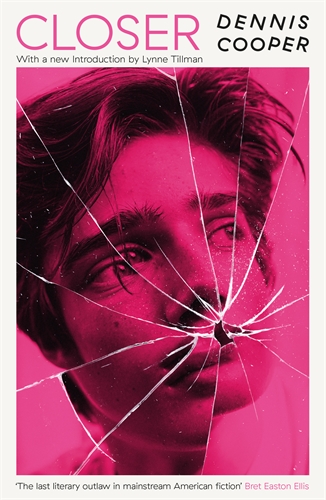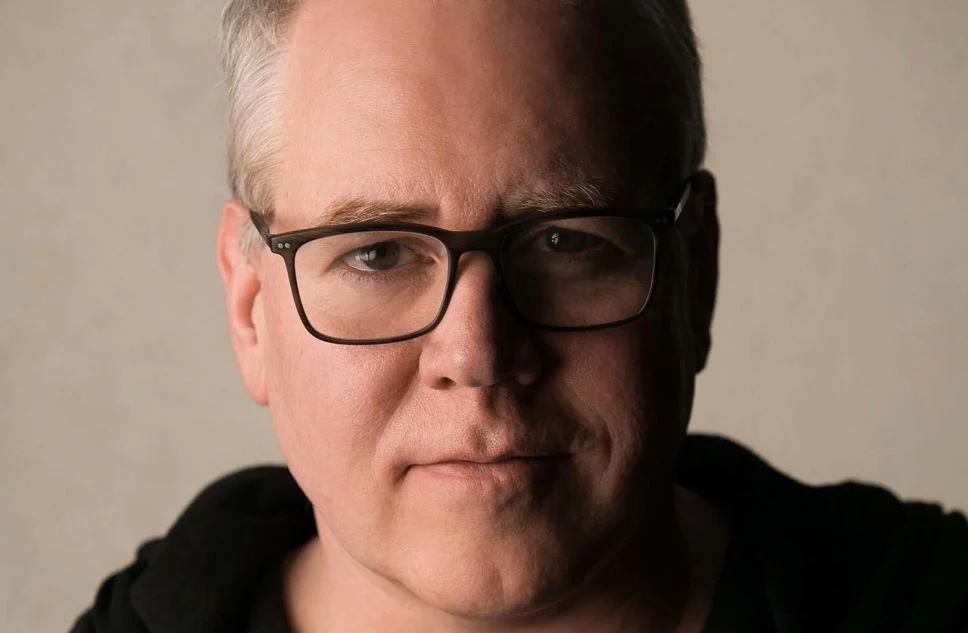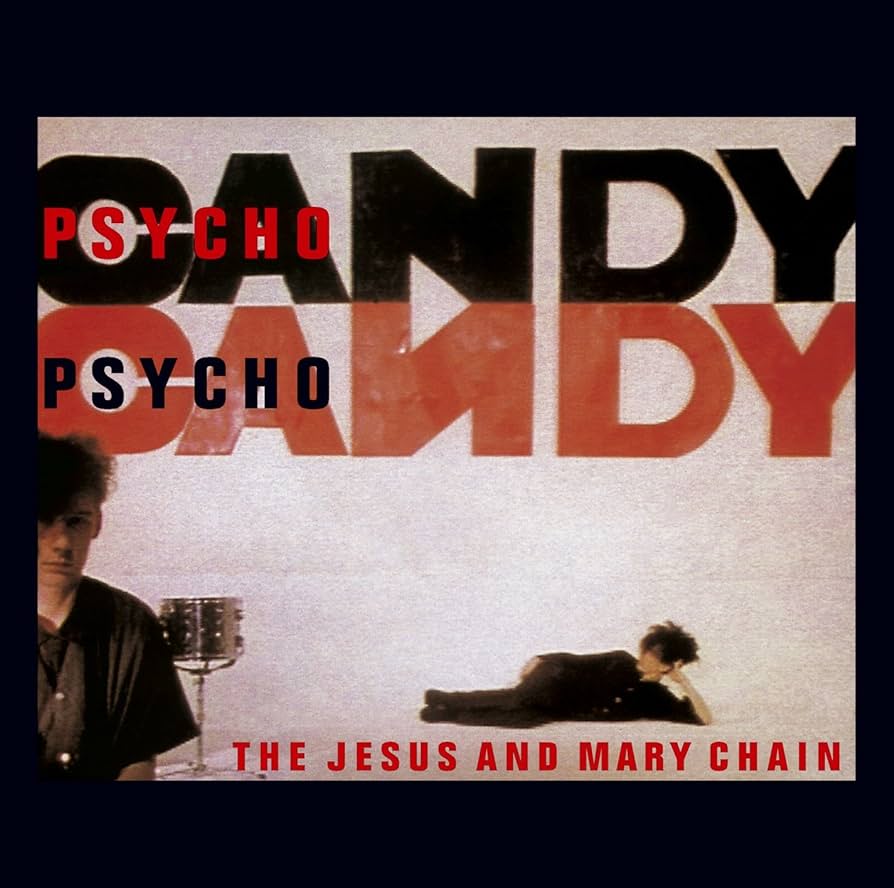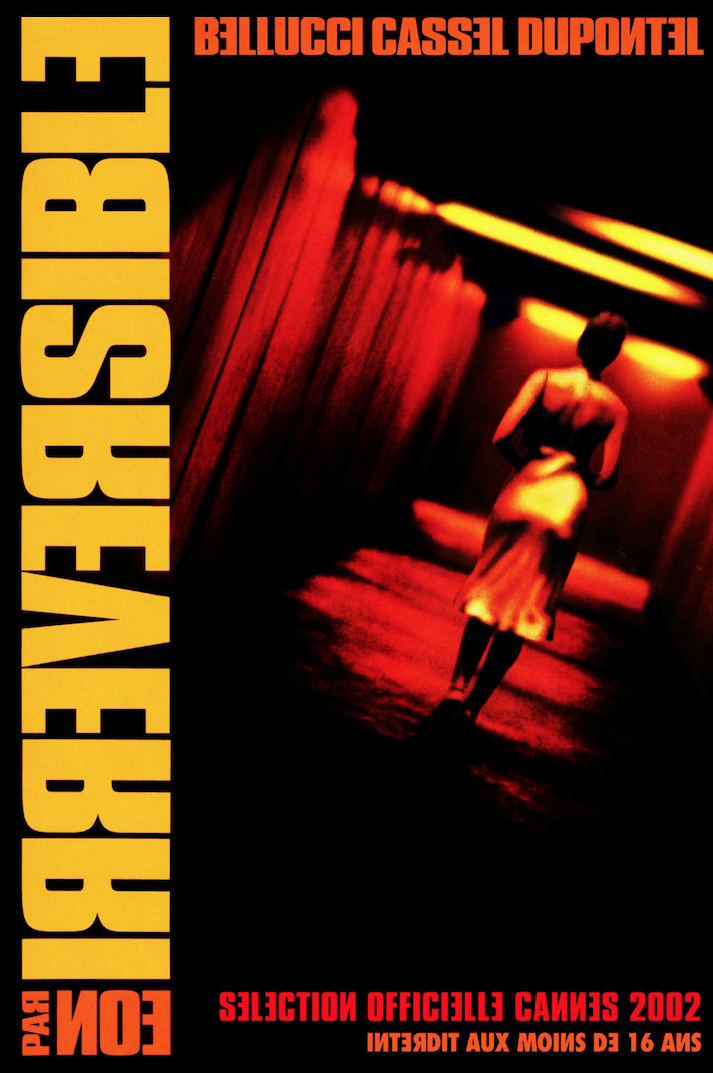- Opinion
- 03 Apr 24

Cult US author Dennis Cooper on his reissued classic Closer, his love of The Jesus And Mary Chain, and his shared aesthetic with fellow bad boys Bret Easton Ellis and Gaspar Noe.
Dennis Cooper’s five-novel George Miles cycle is one of the great achievements of ’90s US literature. Commencing in 1989 with the newly reissued Closer, the series continued with the books Frisk, Try and Guide, before concluding with 2000’s Period.
Though containing intense, transgressive explorations of sex, drugs and violence, at the heart of the cycle is Cooper’s surprisingly emotional attempt to understand his real-life friend and sometime lover George Miles, whom he met in Los Angeles as a teenager, and with whom he had a complex, troubled relationship until Miles’ untimely death shortly before the cycle was complete.
Miles is a recurring character throughout the series, taking various guises. In Closer, he is among a group of disaffected, aimless LA teens, who hang out, do drugs, have sex and listen to music in between attending high school art classes. In classic Cooper fashion, the arrival of some predatory older men and the circulation of snuff films give proceedings a decidedly menacing hue.
Indeed, it’s a suitably macabre read for October 31, Halloween, which the date our interview takes place, at my suggestion. When I note that Closer was an ideal seasonal read, the 70-year-old Cooper – his craggy features looming out beneath his tousled grey hair – chuckles over Zoom from his Parisian home that he was, “Happy to help!”

Advertisement
I ask him if he’s surprised the extent to which the George Miles cycle has been such a feature of his creative life.
“Well, it’s not like it was some gigantic thing,” considers Cooper. “I had hoped that it would be seen as unique and valuable, and I’m happy it was. You know how it is, I’m always thinking about what I’m doing now. But yeah, the reception to it was nice.”
What was the real George Miles like, and why did he make such an impact on you?
“Actually my last novel I Wished was about that,” Cooper explains. “It came out about 18 months ago. It’s an enormously complicated thing to talk about. He was just this kid when I met him, he was 12 and I was 15. He was the younger brother of a friend of mine. For some reason, we just immediately bonded, even though we were a different age. He was always really important to me, and he was very fucked up – he had very serious bipolar, which didn’t really manifest until he was 13 or 14.
“We were just really close. He was enormously troubled and we had a very complicated relationship, but I really adored him, so we stuck through it for years. Eventually, we became more than friends. I don’t really know why, but he triggered something in me. Even when I first knew him, I was writing poems about him and things. He was always a kind of muse, even when we were in touch.”
“In 1983, I moved to Amsterdam and lost track of him. He wasn’t responding to my letters and he killed himself. I didn’t know that until I was about to write the fifth novel, so I thought he was alive. The whole time I wrote those books for him, he was dead. But I don’t know why – for some reason, he just always got to me. There’s something about him that makes me feel enormously sympathetic and fascinated, and caring and worried, and all those things that get you a bit obsessed.”
The punk nihilism of Closer has definite echoes of Less Than Zero, the cult classic debut of Bret Easton Ellis, who famously described Cooper as “the last literary outlaw in mainstream American fiction”.
Advertisement

“Well, we both grew up in Los Angeles,” notes Dennis. “He was a little more upper crust than me. Even thought Bret and I do very different things, I really like his work. Actually, when I was starting to work on the cycle, Less Than Zero came out and people were saying to me, ‘Do not read this book, this kid has totally ripped you off.’ Which isn’t true at all, but they said don’t read it, it’s going to drive you crazy.
“So I actually didn’t read Less Than Zero until I finished Closer, just to be sure. Then when I did read it, I went, ‘Oh I see what they were saying, there’s a strong connection there.’ I really liked the book, and I was fascinated, because the flat prose and the coldness were very similar, but at the same time, he was doing something very different to me. So yeah, I felt a connection to that book and to Bret’s work in general.”
There were further parallels courtesy of the second book in the cycle, Frisk, in which a character called ‘Dennis’ sends postcards back to the US from Amsterdam, containing increasingly lurid and graphic descriptions of violence. It certainly ranks alongside Ellis’ American Psycho as one of the most notorious US novels of the past 40 years.
“Yeah, they came out at the same time and we both went through hell,” recalls Cooper. “He went through a huge amount more hell because he was so famous. Luckily, I was just a strange, cult figure guy. Both of them came out the same time as Jeffrey Dahmer, the famous serial killer, was arrested, so it was just a big mess.”
Although Cooper is roughly 15 years older than Ellis, there definitely seemed to be something in the air in Los Angeles, when they both came of age in the city throughout the ’70s and ’80s.
“I think so,” nods Dennis. “Even though I’m a bit older, it’s not a vast gap. The scene in LA was the scene in LA. I went to see bands and I went to clubs, the same things he did, it didn’t really change. When I was growing up, and to some degree when he was – he would have been pretty young – there were a lot of serial killers. Specifically ones that were killing teenage boys.
Advertisement
“This was really in the air and in the news, so that influenced both of us, that sense young people were in danger, or that you could be in danger. The feeling you could just be abducted off the street by some guy and killed.”
In common not only with Ellis, but other radical ’90s authors like Irvine Welsh and Chuck Palahniuk, Cooper’s fiction is hugely influenced by music and youth culture. Along with the classic video game series Resident Evil, Period for example sougth to capture the eerie atmosphere of Warp record techno Mavericks Autechre. US alternative favourites Husker Du were a major influence on Try, while the ’80s also found Cooper writing the liner notes for Sonic Youth’s Sister album.
“I’m really influenced by things that aren’t books,” he acknowledges. “I’m very influenced by music. Usually when I reference music in a book, it’s because I’ve studying it. In Closer, I was really influenced by The Jesus And Mary Chain’s Psychocandy, because it had just come out and I was fascinated by it. I was like, ‘How can I get this effect with just words?’”

Occasionally, Cooper’s pop culture fixation has been the source of some controversy. Filled with Britpop references, Guide caused a bit of a stir when a thinly veiled of version of Blur’s Alex James – bassist in a band called, er, Smear – was subjected to some decidedly rough treatment.
“Alex James isn’t too happy with me,” winces Cooper. “I guess apparently still, but he was definitely not happy with me about Guide. This is a while back, but I met a guy who directed one of their videos. He said, ‘When I was sitting around meeting with them, Alex James was making tea for us.’
“He asked what they thought of the Dennis Cooper novel, and apparently Alex James dropped the tea-tray, had this kind of panic attack and left the room. This guy told me Damon leaned over and said, ‘Don’t ever say that name around Alex again!’ So apparently it’s still going on. But yeah, he was supposed to interview me for The Idler about being in the book, and then he freaked out and cancelled it.
Advertisement
“I just thought it was funny. I thought he was a smart guy, I didn’t think he’d take it so personally (laughs). The guy in Silverchair also gets taken advantage of and he loved it. He wrote me a letter saying, ‘This is cool, thank you!’ So, I don’t know.”
Revered as one of Gen X’s poet laureates, I wonder what Cooper makes of today’s more sensitive cultural landscape. I recently saw the headline ‘Gen Z want less sex onscreen’ in The Guardian – something it was hard to imagine being written of Gen X.
“Generalisations are such bullshit,” groans Dennis. “I’m completely against them. I’m an anarchist, right? Whenever they say shit like that, I’m just like, ‘Fuck off!’ (laughs)”
Still, it’s hard to imagine how Cooper’s oeuvre would fare with a sensitivity reader.
“There’s no question that it’s an extremely conservative time,” he says. “There’s this whole fear of the unknown, fear of being challenged. It’s just crazy really, I can’t believe some of the things that happen. It’s not just in literature. Anyone who supports the Palestinians right now is getting kicked out of their jobs. It’s really at an extreme level, I’ve never seen anything like this.
“Usually, the youth is trying to push for something more radical, and now that’s not the case. I don’t understand it, but yes, you’re right, it’s a strange time. I’m very happy that I’m a cult figure and so nobody goes, ‘Dennis Cooper, let’s get him!’ Because I don’t matter that much.”
Still, Cooper is reasonably optimistic about younger writers coming through, saying, “There’s a really good independent publishing situation in the US.” Finally, with Cooper being based in Paris, I bring up cult French filmmaker Gaspar Noe. Scandalising audiences with its mix of sex and violence, I suggest Noe’s 2002 shocker Irreversible goes some way to capturing Cooper’s aesthetic onscreen.
Advertisement

“I really like Gaspar’s work,” he enthuses. “My favourite is Enter The Void. I know Gaspar, he’s great and I really like his stuff, except for a couple of things he seemed to toss off a little bit. But I really like the early work a lot. We like each other and we’ve had some very interesting conversations. So yeah, I think there’s some connection there.”
The reissue of Closer is out now, published by Serpent’s Tail.










